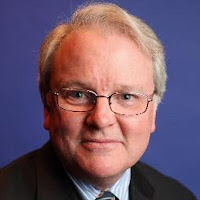The photo to the right is of me presenting at an event several years ago. For the last year, everything I've been involved in has been done virtually. The upcoming events on my calendar will also be virtual and synchronous. Perhaps I'll see you at one of these?
March 9, 1:00-2:00 p.m. ET - Librarian Education Reform March Meeting: The Struggle to Diversify Library Staff. This month I am the speaker/facilitator, and will be engaging the group
in a discussion focused on "The Struggle to Diversify Library Staff." This
discussion will use my blog posts from last year on this subject. Check this post for more information on this event.
March 12, 4:00-5:00 p.m. ET - Virtual author event for Change the World Using Social Media. Changing the World Using Social Media was written by Paul Signorelli and published 2020. Maurice Coleman and I contributed to the book, and will be speaking about the book's content - along with Paul - during this free San Francisco Public Library event. Registration is available through the Library’s website.
March 16, 1:00-2:00 p.m. ET - CNI Spring Virtual Meeting session on Controlled Digital Lending for Libraries and Consortia with Charlie Barlow, Kyle Courtney, Chris Freeland, and Jennie Rose Halpern. Description:
Internet Archive seeks to convene a panel with Library Futures to
discuss Controlled Digital Lending (CDL) in libraries and library
consortia. Bringing together two organizations committed to digital
access and equity and a library consortium, the panelists will discuss
how libraries can use technology to assert their right to acquire and
lend their own materials while respecting copyright. The panel will
focus on how both practitioners and advocacy organizations are using CDL
and building a community of practice that includes policy, education,
and technical implementation of digital lending in libraries.
March 18 - Mentoring: Benefitting You, Benefitting Others as part of the New York Library Association (NYLA) Developing Leaders Program. This session is for DLP participants only.
March 24, 10:00-11:30 a.m. ET - Webinar: Tips and Tricks – Giving a Presentation and Engaging Your Audience for the Central NY Library Resources Council (CLRC) and the Empire State Library Network (ESLN). Description:
Have you been asked to give a
presentation and do not know how to prepare for it? Have you given a
presentation and are unsatisfied with how it went? Are you interested in
ideas on how to engage the audience? If yes, then this webinar is for
you! Come and learn how to think about your online and face-to-face
presentations and training sessions. You will leave with new skills,
including a few easy tips and tricks, in effective presentation design
and powerful workshop delivery.
This is a topic I have spoken on many times over the years, and I'm pleased to do it again!
May 13, 2:30-4:00 p.m. ET - Understanding Fair Use During an Emergency, like a Pandemic for the American Library Association (ALA). {Updated 03/31} Registration is open. Description:
No one would have predicted that when the pandemic struck copyright would become a hot topic. However, when libraries and school closed their physical doors in spring 2020 and moved online, questions emerged about the use of materials in the online environment. For example, could a book be read in an online storytime? Confusing the matter were publishers who “gave” permission, while those knowledgeable in copyright said that permission was not needed.
This webinar will use four common scenarios to discuss the application of Fair Use during a pandemic and other emergencies, as well as in normal times. Each scenario will focus on a common library activity. Basic copyright information with be provided, so that everyone enters the scenarios with similar knowledge. There will be time for participant questions throughout.
July 9, 9:45-10:45 a.m. ET - Keynote for the 2021 Virtual Library of Virginia (VIVA) ILL Community Forum. I'll be giving a talk focused on copyright and interlibrary loan. More details to come after a meeting with the planning committee, since there is much I could cover!
Remember that I can collaborate with you to tailor any of my highly-interactive presentations to meet your needs. For more information or to discuss an idea, please contact me at hurst@hurstassociates.com.



